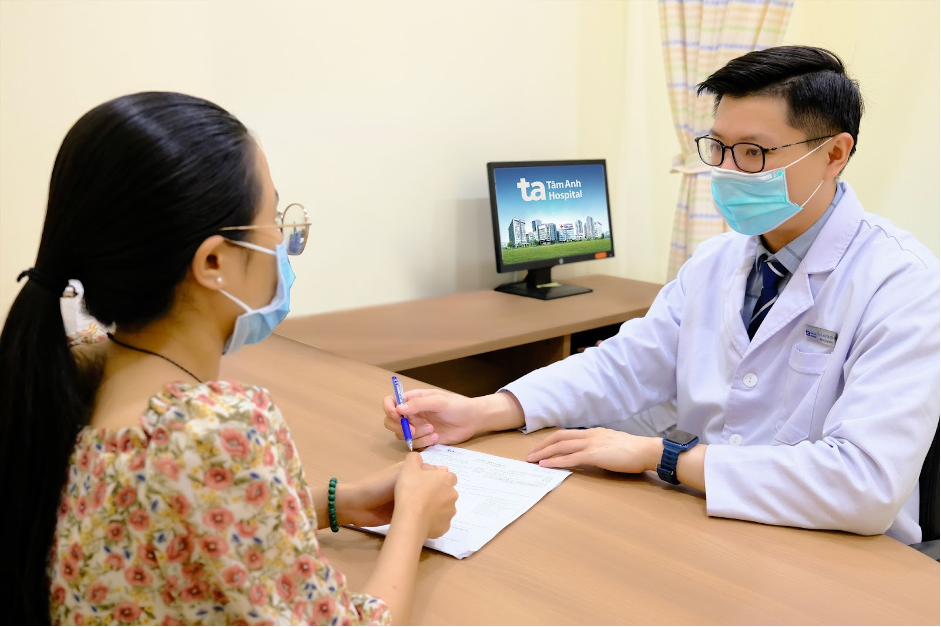Answer:
Colorectal cancer occurs when cells in the lining of the colon or rectum grow uncontrollably. It is more common in people over 50, but its incidence is increasing among younger individuals. If not treated promptly and correctly, cancer cells can spread to nearby lymph nodes or other organs.
Screening helps detect precancerous lesions or early-stage cancer before symptoms appear, increasing the chances of a cure, reducing treatment costs, and improving quality of life. Individuals between 45 and 75 years old with no family history of colorectal cancer and no inflammatory bowel diseases (like ulcerative colitis or Crohn's disease) are considered at average risk and should undergo screening annually.
 |
Doctor Nguyen Tien Si consults with a patient. Photo illustration: Tam Anh General Hospital |
Doctor Nguyen Tien Si consults with a patient. Photo illustration: Tam Anh General Hospital
High-risk individuals, such as those with a family history of colorectal cancer or genetic syndromes (like familial adenomatous polyposis or Lynch syndrome), those with Crohn's disease (a type of inflammatory bowel disease), a personal history of colorectal cancer, or previous radiation therapy to the abdomen or pelvis, should be screened one to two times per year.
You should consult a doctor to determine the cause of your symptoms. If cancer is suspected, your doctor will recommend screening and advise you on a regular screening schedule. A colonoscopy allows direct visual examination of the entire lining of the colon and rectum, detecting precancerous lesions like polyps and removing them before they develop into cancer.
Additionally, you should limit your intake of red meat, processed foods (such as sausages and canned meat), and low-fiber foods. Increase your consumption of green vegetables, fruits, and vitamins. Avoid excessive alcohol and tobacco use, as these can increase the risk of developing malignant cells in the colon.
Master, Doctor Nguyen Tien Si
Oncology Department
Tam Anh General Hospital, TP HCM












